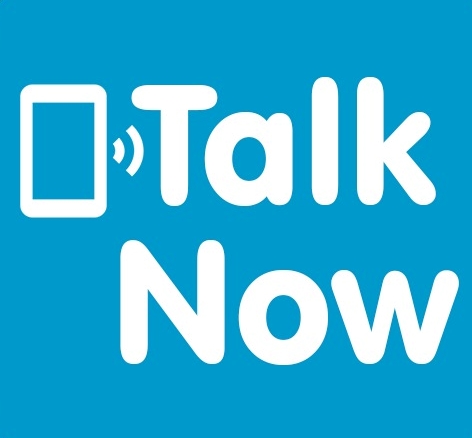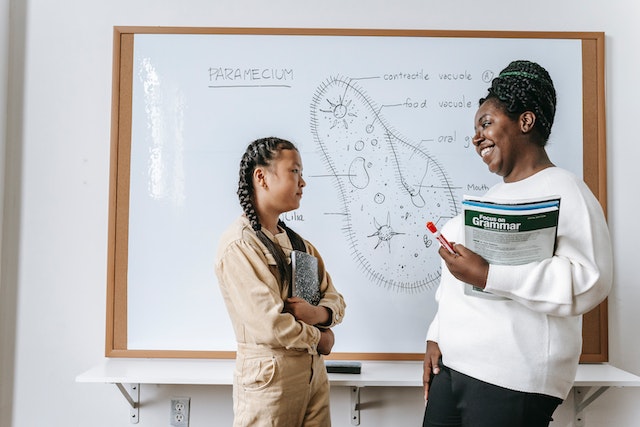Context: Two characters are shown here having a conversation regarding New Year’s resolutions. Claire thinks that new year’s resolutions are important, while Aiden is skeptical and says they don’t work.
Conversation sample:
Claire: Hello Aiden, Happy New Year! How are you?
Aiden: Hello there, Claire. Happy New Year to you as well. I’m OK, how about you?
Claire: I am fantastic. How was your winter vacation?
Aiden. It was fine; nothing major happened, you say.
Claire: Well, I went out for Christmas and returned two days before the new year. I also left with a lot of homework, and it’s kind of my New Year’s resolution to finish and submit everything on time so that I can give more attention to academics and hobbies.
Aiden: Oh, Claire! Forget about all of these new year’s resolutions because they never work.
Claire: What are you saying? New Year’s resolutions help us renew ourselves year after year and facilitate our personal growth.
Aiden: Yes, even my mother told me that resolutions for students are very important. If you can use them, you must be an extraterrestrial, because we humans can never utilize them. So, that’s the end of your resolution essay.
Claire: No, I’m not. I’m simply a little more committed to achieving my goals, and it definitely works for me. Okay, tell me one goal you have for this year. Do you want to save money, exercise regularly, or lose weight? What do you want exactly?
Aiden: Just let it be because I know I’ll follow it for a few days or weeks, but I’ll eventually go back to my old habits. It’s quite irritating and has a negative impact on my mental health too.
Claire: Don’t give up so quickly; at the very least, tell me what you actually want to achieve.
Aiden: OK, if you insist, I’d like to lose weight due to the stress of exams and long study hours that require extra sitting. I gain extra pounds, but no matter how hard I try, I can never stick to a routine for more than a week. I did this new year’s goal thing last year as well, but look where I am now with an extra 10 pounds and an additional 5 pounds acquired this year.
Claire: See, making goals for the new year is not difficult, but keeping them over the long term is. As a result, the majority of people later claim that these resolutions are ineffective for them.
Aiden: That’s what I’m saying. I have no idea why I’m like this. Two years ago, my cousin made a New Year’s resolution to lose 45 pounds. After seeing her pictures on social media, I was so inspired that I decided to do the same. However, I can’t stick to a specific routine; it seems like my adrenaline rush lasts only for a week.
Claire: That’s because your main motivation to accomplish something comes from outside sources, and as long as you keep doing that, you won’t be able to develop a habit. I learned all of this from a book called Atomic Habits, which describes how the human brain functions when creating excellent habits or achieving goals.
Aiden: What do you mean?
Claire: To lose weight, you must reduce stress, develop good eating habits, and begin exercising regularly. You must work on both your physical and mental health, and you must build a long-term habit of doing so. the same way you brush your teeth every morning. Your sense of motivation must originate from within.
Aiden: Wait a minute How does brushing my teeth relate to your speech on New Year’s resolutions and developing good habits for long-term goal achievement?
Claire: Because brushing your teeth is a key activity that your brain perceives as a routine rather than a task to complete, You’ve been doing it since childhood, and your brain has grown accustomed to it. Engaging in an activity for an extended period of time convinces the mind that it’s a habit, a daily routine. Our bodies follow the brain’s lead and help us meet our goals.
Aiden: Yes, I know I started a routine of going to the gym every day or eating well, but I couldn’t keep it up for more than a few weeks because I lack motivation. That is what I’m trying to say.
Claire: Because seeing someone else succeed is your main source of inspiration, you must first decide that you must accomplish something. According to the book Atomic Habits, If you want to make it a habit, you must practice it for at least 66 days.
Aiden: Wow, that many?
Claire: When you consider the long-term benefits, those will appear insignificant. Atomic habits have greatly helped me in habit formation and in understanding why people relapse into old patterns and how to avoid them.
Aiden: Wow, you learned all of this from a book?
Claire: Well, most of it, but whatever it is, it has really helped me in achieving my goals and obtaining high grades.
Aiden: But what if nothing works for me and I’m stuck being like this forever?
Claire: See, it’s your fear of failing that’s keeping you from trying. Take little steps every day. Your brain can learn anything at any age, and your body will simply follow your brain’s directions once you’ve done it long enough for your brain to accept it as a primary routine.
Aiden: Claire, thank you so much. I’m glad we discussed it today, and I believe I can do it; I can create and cultivate good habits.
Claire: So you’re going to set a New Year’s resolution now?
Aiden: I believe I will succeed this year.
Glossary:
- Skeptical: suspicion, attitude of doubt.
- Facilitates: a service that makes it possible to do something.
- Extraterrestrial: a creature that comes/ may exist on another planet.
- Acquired: to obtain or buy something.
- Accustomed: if you are accustomed to something, you are used to it and it is not strange for you.
- Cultivate: (here) to improve.















